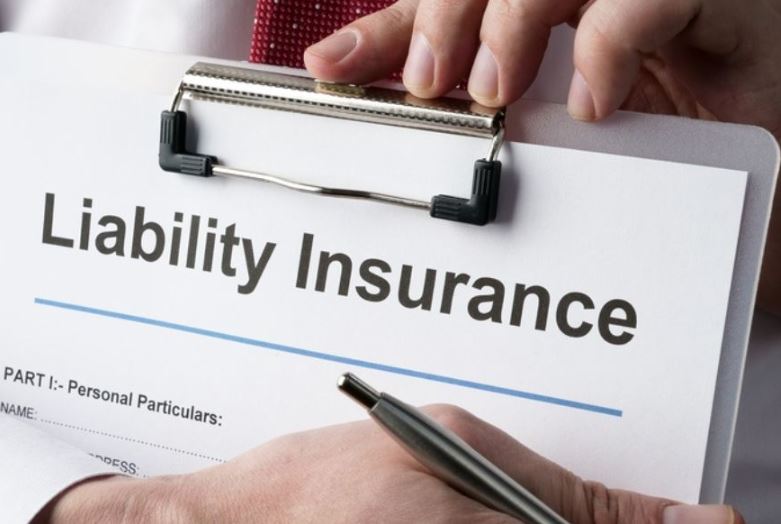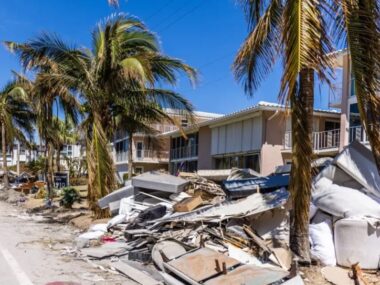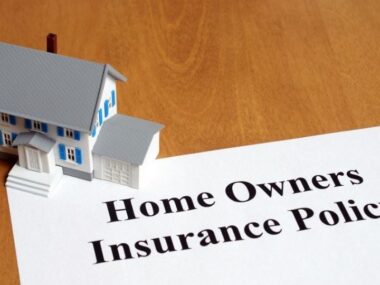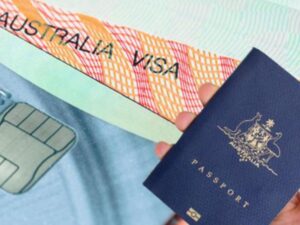In today’s hyper-competitive marketplace, businesses strive to innovate, create, and deliver cutting-edge products to eager consumers. However, this pursuit of excellence comes with inherent risks. From manufacturing flaws to unforeseen design defects, the potential for product-related accidents and subsequent legal claims looms large. This is where product liability insurance emerges as a critical safeguard for businesses of all sizes, from small startups to multinational corporations.
This guide delves into the intricate world of product liability insurance, exploring its key aspects, benefits, and considerations. We’ll examine the various scenarios that can trigger product liability claims, the potential consequences of facing such claims without adequate coverage, and the crucial steps businesses can take to mitigate these risks.
Whether you’re a seasoned entrepreneur or just starting your entrepreneurial journey, understanding the nuances of product liability insurance is paramount. This knowledge will empower you to make informed decisions, protect your business from financial ruin, and maintain a strong reputation in the eyes of your customers.
Why Product Liability Insurance is a Business Lifeline
Product liability insurance isn’t just a nice-to-have; it’s a critical lifeline for businesses operating in today’s complex marketplace. Here’s why:
-
The Devastating Impact of Product Liability Claims:
- Financial Ruin: Lawsuits stemming from product defects can be incredibly expensive. Legal fees for defense, court costs, and potentially massive settlements or jury awards can quickly drain a company’s resources, leading to bankruptcy.
- Reputational Damage: Negative publicity surrounding a product liability claim can severely tarnish a company’s image. News of injuries, recalls, or lawsuits spreads rapidly, eroding consumer trust and impacting brand loyalty. This damage can take years to repair, even if the company is ultimately exonerated.
- Market Share Erosion: Consumers are increasingly conscious of safety and ethical business practices. A product liability scandal can drive customers away from a company’s products, leading to significant market share losses and long-term financial instability.
- Operational Disruption: Product recalls, even if necessary, can disrupt production schedules, strain supply chains, and damage relationships with suppliers and distributors.
-
The Ever-Evolving Legal Landscape:
- Stricter Regulations: Governments worldwide are constantly tightening regulations around product safety. Non-compliance can result in hefty fines, product bans, and even criminal charges, further compounding the risks for businesses.
- Changing Consumer Expectations: Consumers are becoming more aware of their rights and more willing to pursue legal action when they believe they have been harmed by a defective product. This increased awareness has led to a rise in product liability claims.
- Social Media Scrutiny: Social media platforms provide a powerful platform for consumers to share their experiences, both positive and negative. A single negative review or a viral video of a product malfunction can quickly escalate into a public relations crisis.
-
The Importance of Proactive Risk Management:
Product liability insurance is not just about responding to crises; it’s about proactive risk management. By investing in this coverage, businesses can:
- Mitigate Financial Risk: Protect themselves from the potentially devastating financial consequences of product liability claims.
- Maintain Business Continuity: Ensure that the company can continue to operate and serve its customers even in the face of a major claim.
- Enhance Customer Confidence: Demonstrate a commitment to product safety and customer well-being, building trust and loyalty.
- Improve Risk Management Practices: The insurance process itself can encourage businesses to implement robust quality control measures, improve product design, and enhance safety procedures.
In today’s dynamic and interconnected world, product liability insurance is no longer a luxury; it’s a necessity for any business that manufactures, distributes, or sells products. By understanding the critical role of this coverage, businesses can safeguard their future and navigate the complexities of the marketplace with confidence.
Who Needs Product Liability Insurance?
While product liability insurance is often associated with manufacturing companies, it’s essential for a wide range of businesses, including:
- Manufacturers: Businesses that produce physical products, from cars to toys, are at the highest risk of product liability claims. They are directly responsible for the design, manufacturing, and distribution of their products, making them potential targets for lawsuits in case of defects.
- Distributors: Companies that sell products manufactured by others, such as wholesalers and retailers, can also be held liable for defective products. Even if they don’t manufacture the products themselves, they are involved in the distribution chain and can be considered responsible for ensuring the safety of the products they sell.
- Retailers: Even if a retailer doesn’t manufacture or distribute products, they can be liable if they sell a defective product. This is especially true in cases where the retailer has knowledge of the defect or should have reasonably known about it.
- Service providers: Businesses that provide services, such as restaurants or gyms, may need product liability insurance to cover injuries caused by defective equipment or products used in their services. For example, a restaurant could be liable for injuries caused by a defective chair or a gym could be liable for injuries caused by faulty exercise equipment.
- Online retailers: Businesses that sell products online are also subject to product liability laws and should consider obtaining insurance coverage. The internet has made it easier for consumers to purchase products from all over the world, increasing the potential for product liability claims.
Understanding the Risks
Each of these businesses faces unique risks related to product liability. Manufacturers may be liable for defective designs, materials, or manufacturing processes. Distributors and retailers can be held responsible for selling defective products, even if they were unaware of the defect. Service providers may be liable for injuries caused by defective equipment or products used in their services.
A Safety Net for Businesses
Product liability insurance acts as a safety net for businesses, protecting them from the financial consequences of product-related accidents. By having adequate coverage, businesses can focus on their core operations, rather than being distracted by the threat of lawsuits and financial losses.
Product liability insurance is a crucial component of risk management for a wide range of businesses. By understanding the risks and obtaining adequate coverage, businesses can protect themselves from the potentially devastating consequences of product-related accidents.
Factors That Influence Product Liability Insurance Costs
The cost of product liability insurance is a multifaceted equation, influenced by a variety of factors that insurers meticulously assess to determine the level of risk associated with your business and its products. Here’s a deeper dive into the key factors that significantly impact your premiums:
-
Industry and Product Type:
- Risk Profile: Industries with inherently riskier products, such as pharmaceuticals, heavy machinery, and chemicals, typically face higher premiums. This is due to the potential for severe injuries, property damage, and complex legal battles.
- Product Complexity: The more complex your product, the greater the potential for defects and malfunctions, leading to increased insurance costs.
- Regulatory Environment: Industries with stringent regulations and frequent product recalls will generally have higher premiums to reflect the increased risk.
-
Business Size and Revenue:
- Larger businesses: Often face higher premiums due to increased production volume, a larger customer base, and potentially greater exposure to liability claims.
- Revenue Volume: Higher revenue generally translates to higher premiums, as it indicates a larger volume of products in the market and a greater potential for claims.
-
Claims History:
- Prior Claims: A history of product liability claims, even if resolved favorably, can significantly increase premiums. Insurers view this as an indicator of higher future risk.
- Loss Ratio: The ratio of claims payouts to premiums collected is a key factor. A high loss ratio can lead to premium increases or even policy non-renewal.
-
Safety Measures and Risk Management:
- Quality Control: Robust quality control measures, including rigorous testing and inspection procedures, can help reduce premiums by demonstrating a commitment to product safety.
- Safety Training: Implementing comprehensive safety training programs for employees can also lower premiums by minimizing the risk of accidents and incidents.
- Product Recall Procedures: Having well-defined procedures for product recalls can demonstrate proactive risk management and potentially reduce premiums.
-
Coverage Limits and Deductibles:
- Higher Coverage Limits: Choosing higher policy limits will naturally increase your premiums, as you’re transferring more risk to the insurer.
- Deductibles: Opting for a higher deductible can help lower your premiums, but it also means you’ll be responsible for paying a larger portion of any claim out-of-pocket.
-
Location:
- State Regulations: Varying state regulations regarding product liability can impact premiums. Some states have stricter laws or higher claim rates, which can lead to higher insurance costs.
- Local Market Conditions: Factors like the competitive landscape, consumer awareness, and the prevalence of lawsuits in a particular region can also influence premium rates.
-
Insurance Carrier:
- Financial Stability: Choosing a financially stable and reputable insurance carrier is crucial. However, it’s important to compare quotes from multiple insurers to find the best coverage at the most competitive price.
- Risk Appetite: Different insurers have varying risk appetites. Some may be more willing to insure businesses in high-risk industries or with a history of claims, but they may charge higher premiums to compensate for the increased risk.
By carefully considering these factors and working closely with an experienced insurance broker, businesses can make informed decisions about their product liability insurance coverage and effectively manage their risk exposure.
Top Providers of Product Liability Insurance
When it comes to protecting your business from the financial consequences of product-related accidents, choosing the right product liability insurance provider is crucial. Here are 8 top providers known for their expertise and reliability in this field:
-
AIG
AIG is a global insurance company that offers a comprehensive suite of product liability insurance options, designed to cater to businesses of all sizes and industries. With a strong reputation for financial stability and a global reach, AIG can provide tailored solutions to meet the unique needs of businesses operating in various regions.
-
Chubb
Chubb is another leading provider of product liability insurance, known for its exceptional customer service and innovative product offerings. Their experienced underwriting team can assess your business’s specific risk profile and provide customized coverage that aligns with your needs. Chubb’s commitment to claims handling excellence ensures that policyholders receive prompt and fair treatment in the event of a claim.
-
CNA
CNA is a well-established insurance company that offers a wide range of product liability insurance solutions. With a focus on risk management and loss prevention, CNA can help businesses identify and mitigate potential hazards, reducing the likelihood of product-related accidents. Their experienced claims adjusters are dedicated to providing efficient and effective claim resolution.
-
Hartford
The Hartford is a trusted provider of product liability insurance, offering a variety of coverage options to suit different business needs. Their experienced underwriters can assess your business’s risk profile and provide tailored solutions that meet your specific requirements. The Hartford’s commitment to customer satisfaction ensures that policyholders receive personalized service and support.
-
Liberty Mutual
Liberty Mutual is a large insurance company that offers a wide range of product liability insurance options. Their experienced underwriters can assess your business’s risk profile and provide customized coverage that meets your specific needs. Liberty Mutual’s commitment to claims handling excellence ensures that policyholders receive prompt and fair treatment in the event of a claim.
-
Travelers
Travelers is a leading provider of product liability insurance, offering a variety of coverage options to suit different business needs. Their experienced underwriters can assess your business’s risk profile and provide tailored solutions that meet your specific requirements. Travelers’ commitment to customer satisfaction ensures that policyholders receive personalized service and support.
-
Zurich
Zurich is a global insurance company that offers a comprehensive suite of product liability insurance options. With a focus on risk management and loss prevention, Zurich can help businesses identify and mitigate potential hazards, reducing the likelihood of product-related accidents. Their experienced claims adjusters are dedicated to providing efficient and effective claim resolution.
-
Hiscox
Hiscox is a specialist insurer that offers a variety of product liability insurance options, tailored to meet the specific needs of businesses in various industries. Their experienced underwriters can assess your business’s risk profile and provide customized coverage that aligns with your needs. Hiscox’s commitment to customer satisfaction ensures that policyholders receive personalized service and support.
When choosing a product liability insurance provider, it’s important to consider the following factors:
- Coverage: Ensure that the provider offers the level of coverage you need to protect your business.
- Premiums: Compare premiums from different providers to find the best value for your money.
- Financial stability: Choose a provider with a strong financial rating to ensure they can meet their obligations in the event of a claim.
- Customer service: Look for a provider with a reputation for excellent customer service.
- Claims handling: Consider how the provider handles claims. A provider with a track record of handling claims efficiently and fairly can be a valuable asset.
By carefully evaluating these factors and considering the reputation and expertise of the providers listed above, you can find a product liability insurance provider that meets your business’s specific needs.
Frequently Asked Questions (FAQs)
Q: What is product liability insurance?
A: Product liability insurance is a type of commercial insurance that protects businesses from the financial consequences of claims arising from injuries, property damage, or economic loss caused by defective products.
Q: Who needs product liability insurance?
A: Any business that manufactures, distributes, sells, or supplies products needs to consider product liability insurance. This includes manufacturers, distributors, wholesalers, retailers, and e-commerce sellers.
Q: What types of product defects are covered by product liability insurance?
A: Common types of defects covered include manufacturing defects (errors in the production process), design defects (flaws in the product’s design), and marketing defects (inadequate warnings, misleading advertising).
Q: What are the potential consequences of not having product liability insurance?
A: The consequences can be severe, including financial ruin, reputational damage, loss of market share, and operational disruption.
Q: How much does product liability insurance cost?
A: The cost varies significantly depending on several factors, including the industry, product type, business size, claims history, safety measures, coverage limits, and deductibles.
Q: How can I reduce my product liability insurance costs?
A: You can reduce costs by implementing robust quality control measures, improving product design, enhancing safety training, and maintaining a strong claims history.
Q: What should I look for when choosing a product liability insurance policy?
A: Look for a policy with adequate coverage limits, clear exclusions, a competitive premium, and a reputable insurance carrier.
Q: How can I find the best product liability insurance for my business?
A: Consult with an experienced insurance broker who can assess your specific needs and recommend the most suitable coverage options.
Q: Can product liability insurance cover all potential losses?
A: While product liability insurance provides significant protection, it may not cover all potential losses. It’s crucial to carefully review the policy terms and conditions to understand its limitations.
Q: Is product liability insurance mandatory?
A: While not always legally mandated, product liability insurance is highly recommended for businesses that deal with products, as it provides essential protection against unforeseen risks.
This information is for general knowledge and guidance only and should not be considered legal or insurance advice. Please consult with a qualified insurance professional for personalized guidance.
Conclusion
Product liability insurance is a critical investment for businesses of all sizes that manufacture, distribute, or sell products. By understanding the potential risks and the importance of adequate coverage, businesses can protect their finances, safeguard their reputation, and ensure long-term sustainability in an increasingly complex and competitive marketplace.







